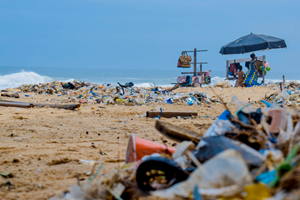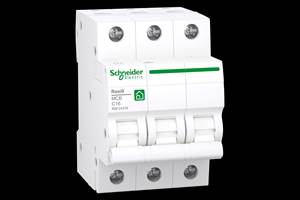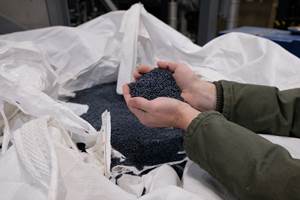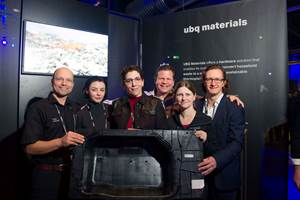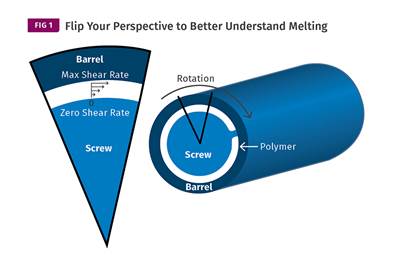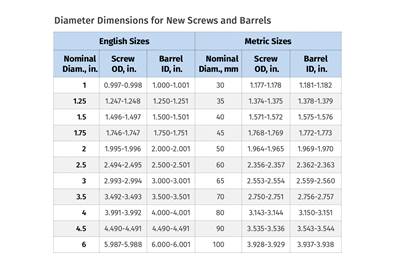Processor Strategies - Royal Group Profile Maker Gives Environment The ‘Royal’ Treatment
When you’re already a leader in your industry, you might be tempted to simply stay the course and not worry about issues such as sustainability and carbon footprint.
When you’re already a leader in your industry, you might be tempted to simply stay the course and not worry about issues such as sustainability and carbon footprint. But standing still is not how the Royal Group’s Window and Door Profiles Div. in Laval, Que., does things.
Royal Window and Door Profiles, Thermoplast Div., is North America’s largest extruder of PVC profiles for windows and doors. It offers more than 800 different types of profiles, produced in a 150,000-sq-ft, state-of-the-art plant. Thermoplast is one of several divisions of the Royal Group, all devoted to building products and construction markets. Founded in 1970 by Victor De Zen, the company was purchased in 2006 by Atlanta-based Georgia Gulf Corp. (ggc.com), supplier of a wide range of rigid and flexible PVC compounds and related products. Royal’s sales of building products were $728 million in 2009. The entire Royal Group employs roughly 3500 people; the Thermoplast Div. accounts for about 600.
IT’S IN THE DNA
Where the environment is concerned, Thermoplast walks the walk and has implemented a range of initiatives that have saved energy in its production process while making better use of scrap generated not only in-house but in the field. “Four years ago, we put together a committee to look at what we can do to help the environment,” said Andre Touchette, president of the Eastern Canada Region for the Window and Door Div. “We all have families, and we all want to make the planet a better place. And let’s face it, Royal has been in building materials for decades, so sustainability and durability has been part of our DNA.”
Royal’s Thermoplast products are all Energy Star qualified, meaning that they have been certified to use less energy, save money, and help protect the environment. “Recycling initiatives plus a coordinated effort on the part of all employees to reduce the use of power and water are the cornerstones of our green initiatives,” says Touchette. “Over the last two years, we strived to meet high environmental standards and achieved conclusive results.”
Those results include a remarkable 88% reduction in the amount of water used in the manufacturing process, which amounts to a whopping 38,000 gal/day. Touchette attributes this reduction primarily to closed-loop water cooling. Thermoplast also redistributes the heat generated by its extrusion lines to regulate the temperature of the plant, slashing its natural gas expenses by 42%. Moreover, Thermoplast now uses an air blower to clean parts, eliminating the need for a compressed-air system, which cut its electricity use by 8%.
Perhaps the most dramatic example of Royal’s commitment to the environment is a recycling system it set up with its fabricators. Every day, Royal sends trucks to the field to collect “end cuts” made during the installation process. They are returned to the plant, where they are reground and reprocessed into new profiles. “Our industry needs to come out of the silo and look at the big picture,” Touchette advises. “We have invested significantly in people, time, processes, and equipment to make this happen. But the investment has paid for itself. We’ve positioned ourselves as a leader where environmental issues are concerned. This has helped us with customer retention, and has also helped us attract new customers who want to partner with someone who is ahead of the game.”
Touchette is not keeping Thermoplast’s successes a secret. He is president of Quebec’s Window & Door Association, and has established an open-door policy enabling his competitors to tour the plant and see first-hand the steps Royal has taken.
Related Content
Fungi Makes Meal of Polypropylene
University of Sydney researchers identify two strains of fungi that can biodegrade hard to recycle plastics like PP.
Read MoreResins & Additives for Sustainability in Vehicles, Electronics, Packaging & Medical
Material suppliers have been stepping up with resins and additives for the ‘circular economy,’ ranging from mechanically or chemically recycled to biobased content.
Read MoreNew Facility Refreshes Post-Consumer PP by Washing Out Additives, Contaminants
PureCycle prepares to scale up its novel solvent recycling approach as new facility nears completion.
Read MoreHonda Now Exploring UBQ’s Biobased Material Made from Unsorted Household Waste
UBQ is aiming to expand its reach for more sustainable automotive parts as well as non-automotive applications.
Read MoreRead Next
Understanding Melting in Single-Screw Extruders
You can better visualize the melting process by “flipping” the observation point so that the barrel appears to be turning clockwise around a stationary screw.
Read MoreLead the Conversation, Change the Conversation
Coverage of single-use plastics can be both misleading and demoralizing. Here are 10 tips for changing the perception of the plastics industry at your company and in your community.
Read MoreTroubleshooting Screw and Barrel Wear in Extrusion
Extruder screws and barrels will wear over time. If you are seeing a reduction in specific rate and higher discharge temperatures, wear is the likely culprit.
Read More
















